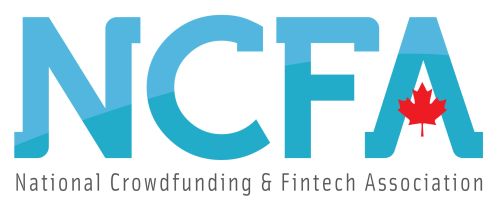Policy | March 13, 2024

 Image: Unsplash/Alexander Mils
Image: Unsplash/Alexander MilsNew legislation in the U.S. opens doors for startup investment
The House of Representatives has recently passed the Expanding Access to Capital Act, an important piece of legislation sponsored by Patrick McHenry, which aims to streamline and enhance the funding process for entrepreneurs and startups.
The bill was approved with a vote of 212 to 205, reflecting a division along party lines. Fifteen Representatives abstained from voting. Although the bill did not receive support from Democrats, the final version of the legislation included several amendments proposed by Democratic members. Although the House has passed the legislation, its reception in the Senate remains uncertain. Before becoming law, legislation must pass through several stages, including potential amendments and approvals by different legislative bodies (e.g., the Senate in the United States). Until it is finalized and enacted, the exact provisions and their implications ‘may’ change.
See: Neiss Advocates for Economic Growth via H.R. 2799
The Expanding Access to Capital Act introduces several regulatory changes aimed at democratizing investor participation by making it easier for a broader range of investors to engage in the funding of startups and small businesses, such as:
- By simplifying the securities regulations, the act aims to lower the barriers for small businesses and startups to access public and private capital markets. This simplification could involve reducing the paperwork and compliance costs associated with issuing securities, making it more feasible for smaller companies to raise funds.
- Crowdfunding has emerged as a vital tool for democratizing investment in startups. Regulatory changes may include increasing the limits on how much money can be raised through crowdfunding platforms, as well as easing restrictions on who can invest through these platforms, thereby widening the pool of potential investors.
- The act seeks to modify the definition of “accredited investors” to allow more individuals to invest in private offerings. Currently, accredited investor status is largely based on income or net worth, limiting investment opportunities to a relatively small portion of the population. By broadening this definition, more people could participate in early-stage investments.
See: NASAA Intensifies Access to Capital Debate
- For investors in startups and small businesses, the lack of liquidity can be a significant barrier. Regulatory changes aimed at improving the liquidity of private securities could make it easier for investors to sell their stakes, thereby attracting more participants who are concerned about the ability to exit their investments.
- By reducing the complexity and cost of reporting and disclosure requirements for small businesses, the act could make it more attractive for these entities to seek investment from a broader audience. This approach balances the need for investor protection with the goal of reducing burdensome obligations that can deter small businesses from seeking public investment.
- The act may also include provisions to support the development and use of innovative investment platforms and technologies that facilitate easier access for investors. This could involve regulatory sandboxes or other measures that allow for the testing of new financial technologies and investment models without the full weight of regulatory compliance from the outset.
Outlook
As we await its final approval and implementation, the outlook for entrepreneurs seeking to bring new ideas to market is decidedly more optimistic, signaling a shift towards a more accessible and dynamic financial ecosystem. These regulatory changes are designed to create a more inclusive investment ecosystem, where more individuals have the opportunity to invest in startups and small businesses.
See: NCFA Response to the Modernizing Ontario’s Capital Markets Consultation Taskforce
By lowering barriers to entry and making it easier for companies to raise capital, the Expanding Access to Capital Act aims to foster a more vibrant and diverse economic landscape. Canadian capital markets and regulators are you listening?

 The National Crowdfunding & Fintech Association (NCFA Canada) is a financial innovation ecosystem that provides education, market intelligence, industry stewardship, networking and funding opportunities and services to thousands of community members and works closely with industry, government, partners and affiliates to create a vibrant and innovative fintech and funding industry in Canada. Decentralized and distributed, NCFA is engaged with global stakeholders and helps incubate projects and investment in fintech, alternative finance, crowdfunding, peer-to-peer finance, payments, digital assets and tokens, artificial intelligence, blockchain, cryptocurrency, regtech, and insurtech sectors. Join Canada’s Fintech & Funding Community today FREE! Or become a contributing member and get perks. For more information, please visit: www.ncfacanada.org
The National Crowdfunding & Fintech Association (NCFA Canada) is a financial innovation ecosystem that provides education, market intelligence, industry stewardship, networking and funding opportunities and services to thousands of community members and works closely with industry, government, partners and affiliates to create a vibrant and innovative fintech and funding industry in Canada. Decentralized and distributed, NCFA is engaged with global stakeholders and helps incubate projects and investment in fintech, alternative finance, crowdfunding, peer-to-peer finance, payments, digital assets and tokens, artificial intelligence, blockchain, cryptocurrency, regtech, and insurtech sectors. Join Canada’s Fintech & Funding Community today FREE! Or become a contributing member and get perks. For more information, please visit: www.ncfacanada.org
Related Posts
- SEO Powered Content & PR Distribution. Get Amplified Today.
- PlatoData.Network Vertical Generative Ai. Empower Yourself. Access Here.
- PlatoAiStream. Web3 Intelligence. Knowledge Amplified. Access Here.
- PlatoESG. Carbon, CleanTech, Energy, Environment, Solar, Waste Management. Access Here.
- PlatoHealth. Biotech and Clinical Trials Intelligence. Access Here.
- Source: https://ncfacanada.org/u-s-expanding-access-to-capital-act-boosts-startup-funding/
- :has
- :is
- :not
- :where
- 13
- 150
- 200
- 2018
- 212
- 300
- 32
- 62
- a
- ability
- About
- access
- accessible
- accredited
- Accredited Investor
- Act
- advocates
- affiliates
- aimed
- aims
- Alexander
- allow
- along
- also
- alternative
- alternative finance
- Although
- amendments
- an
- and
- approach
- approval
- approvals
- approved
- ARE
- artificial
- artificial intelligence
- AS
- Assets
- associated
- At
- attracting
- attractive
- audience
- await
- balances
- barrier
- barriers
- based
- BE
- become
- becoming
- before
- Bill
- blockchain
- bodies
- boosts
- bring
- broader
- businesses
- by
- cache
- CAN
- Canada
- capital
- Capital Markets
- change
- Changes
- closely
- community
- Companies
- complexity
- compliance
- concerned
- Congress
- consultation
- Cost
- could
- create
- Crowdfunding
- crowdfunding platforms
- cryptocurrency
- Currently
- debate
- decentralized
- decidedly
- definition
- democratic
- Democratizing
- Democrats
- designed
- Development
- DID
- different
- digital
- Digital Assets
- disclosure
- distributed
- diverse
- Division
- doors
- dynamic
- e
- early stage
- easier
- easing
- Economic
- Economic growth
- ecosystem
- Education
- emerged
- engage
- engaged
- enhance
- entities
- entrepreneurs
- entry
- Ether (ETH)
- exact
- Exit
- expanding
- facilitate
- feasible
- final
- finalized
- finance
- financial
- financial innovation
- financial technologies
- fintech
- For
- For Investors
- Foster
- from
- full
- funding
- funding opportunities
- funds
- get
- Global
- goal
- Government
- Growth
- Have
- helps
- High
- House
- How
- http
- HTTPS
- ideas
- image
- implementation
- implications
- important
- improving
- in
- include
- included
- Including
- Inclusive
- Income
- increasing
- individuals
- industry
- information
- Innovation
- innovative
- Insurtech
- Intelligence
- Intensifies
- Introduces
- Invest
- investment
- investment opportunities
- Investments
- investor
- investor protection
- Investors
- involve
- issuing
- IT
- ITS
- Jan
- jpg
- Lack
- landscape
- largely
- Law
- Legislation
- Legislative
- limiting
- limits
- lines
- Liquidity
- Listening
- lower
- lowering
- make
- Making
- March
- March 13
- Market
- Markets
- max-width
- May..
- measures
- member
- Members
- models
- modernizing
- money
- more
- much
- must
- Need
- net
- networking
- New
- obligations
- of
- on
- opens
- opportunities
- Opportunity
- Optimistic
- or
- Other
- Outlook
- paperwork
- participants
- participate
- participation
- partners
- party
- pass
- passed
- patrick
- payments
- peer to peer
- People
- perks
- piece
- Platforms
- plato
- Plato Data Intelligence
- PlatoData
- please
- pool
- population
- portion
- potential
- private
- process
- projects
- proposed
- protection
- provides
- public
- R
- raise
- raised
- range
- receive
- recently
- reception
- reducing
- reflecting
- Regtech
- Regulators
- regulatory
- Regulatory Compliance
- relatively
- remains
- Reporting
- Representatives
- Requirements
- response
- s
- sandboxes
- Sectors
- Securities
- Seek
- seeking
- Seeks
- sell
- Senate
- Services
- several
- shift
- significant
- simplification
- small
- small businesses
- smaller
- Sponsored
- stages
- stakeholders
- startup
- startup funding
- Startups
- States
- Status
- Stewardship
- such
- support
- taskforce
- Technologies
- Testing
- that
- The
- their
- thereby
- These
- this
- thousands
- Through
- to
- today
- Tokens
- tool
- towards
- u.s.
- Uncertain
- United
- United States
- Unsplash
- until
- use
- version
- via
- vibrant
- Visit
- vital
- Vote
- Voting
- was
- we
- weight
- WELL
- which
- WHO
- with
- without
- works
- worth
- you
- zephyrnet











